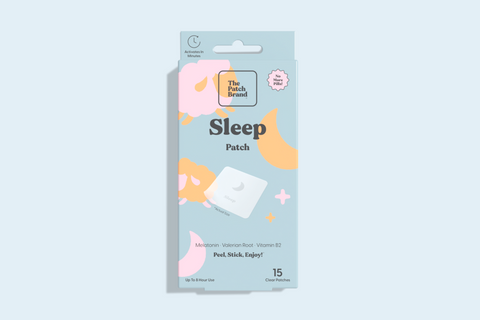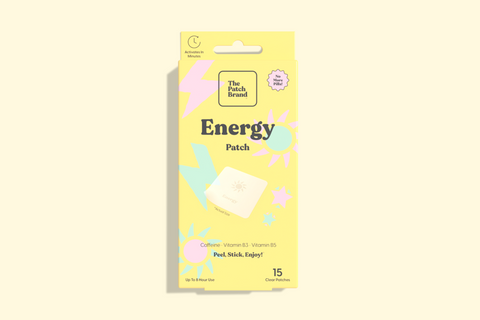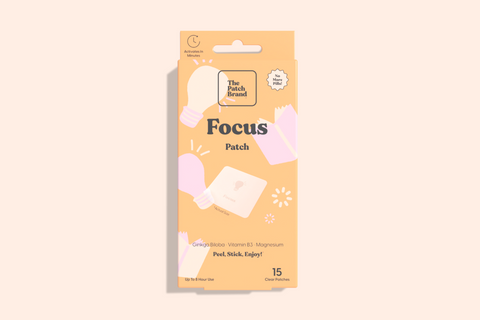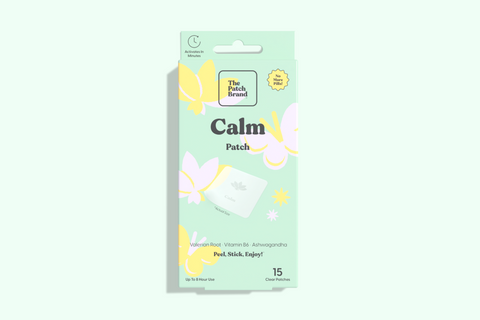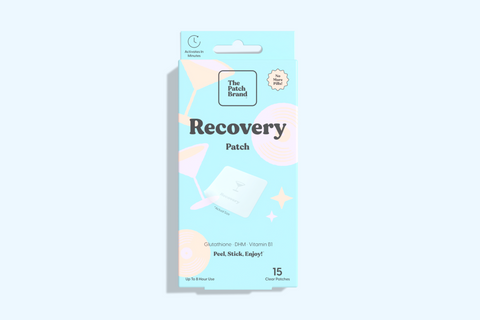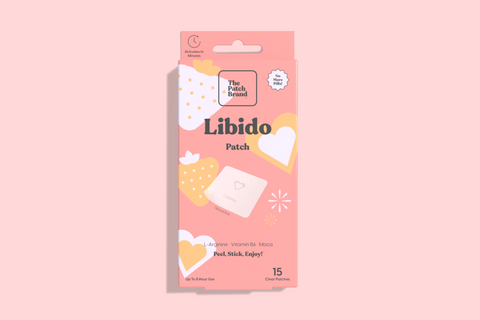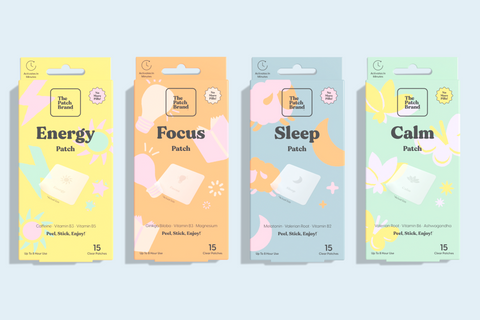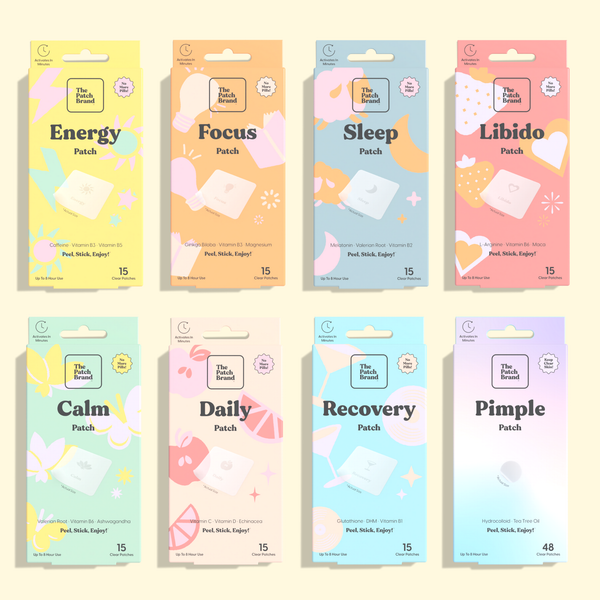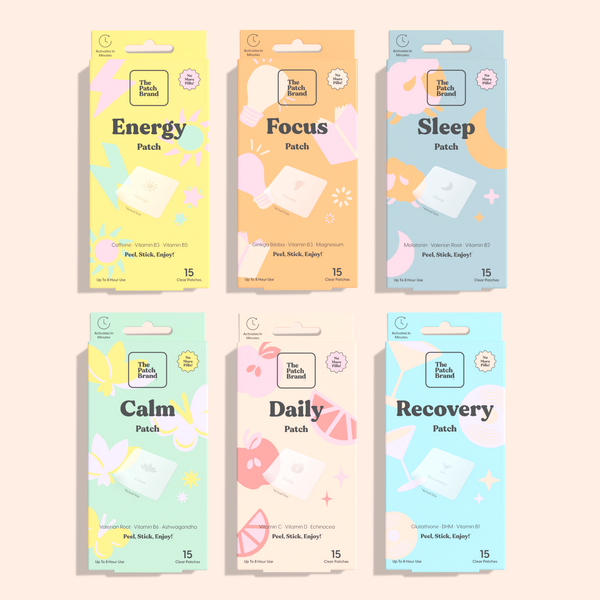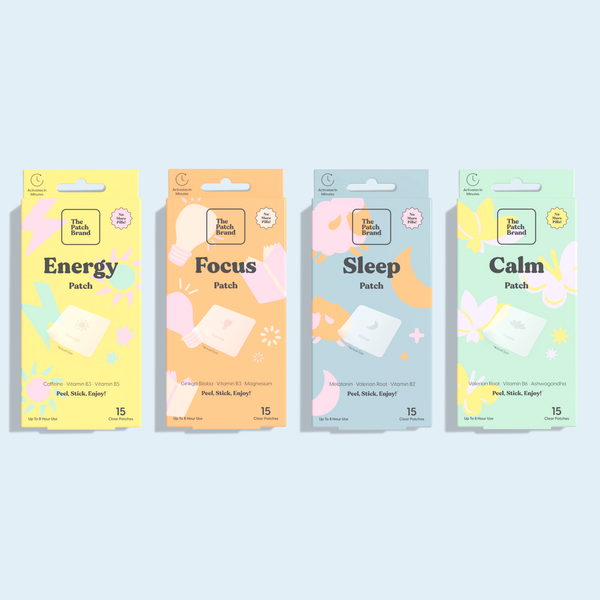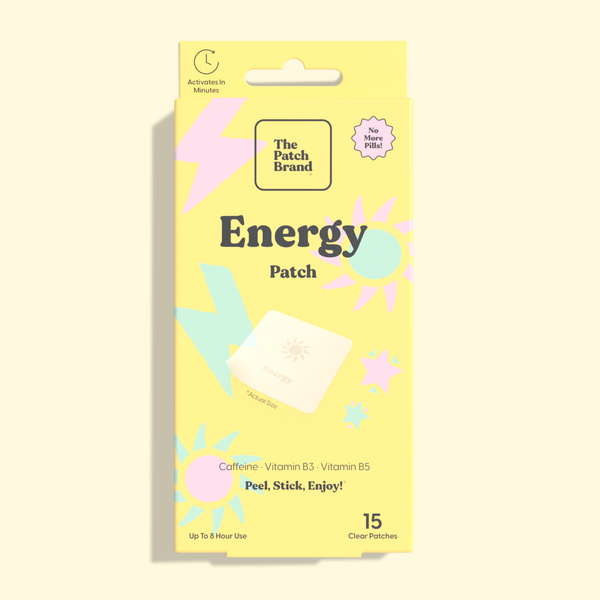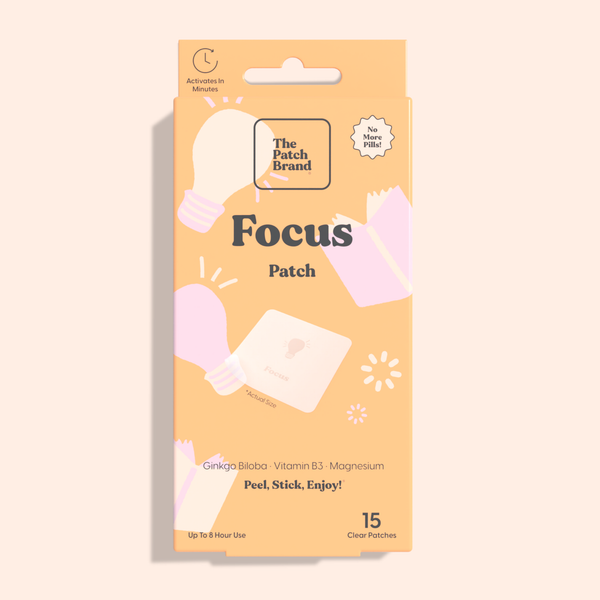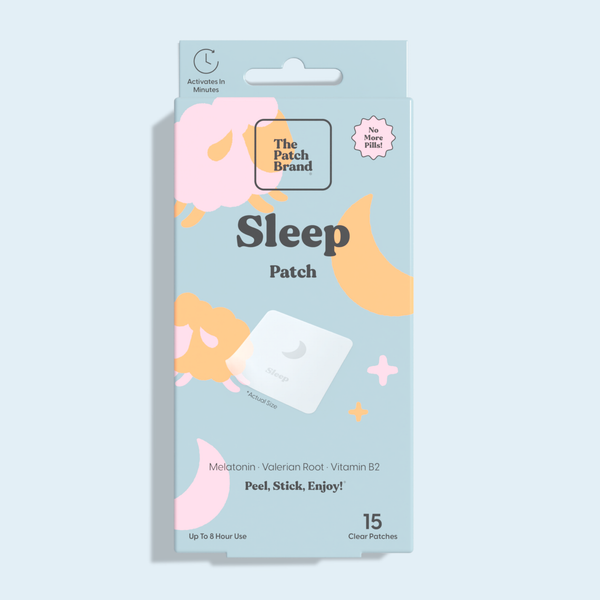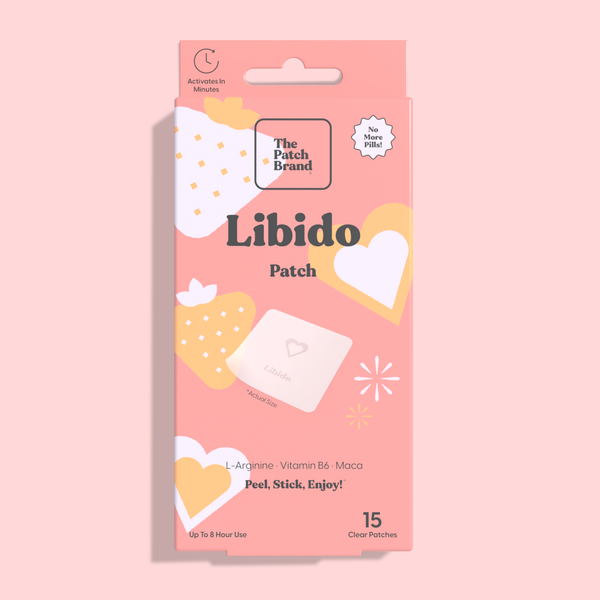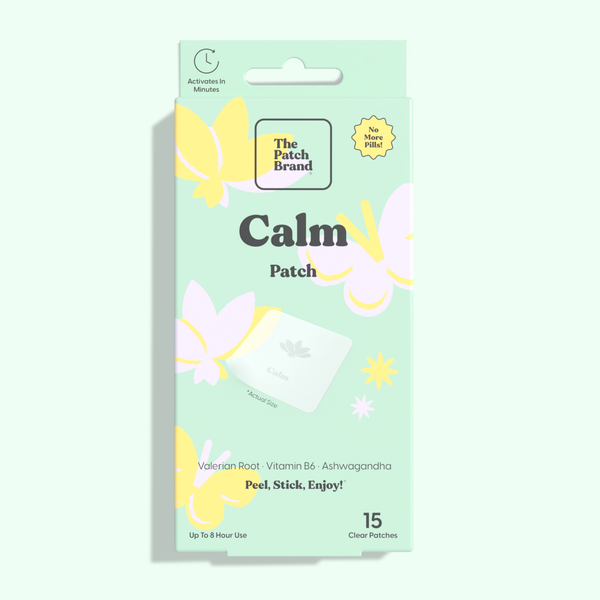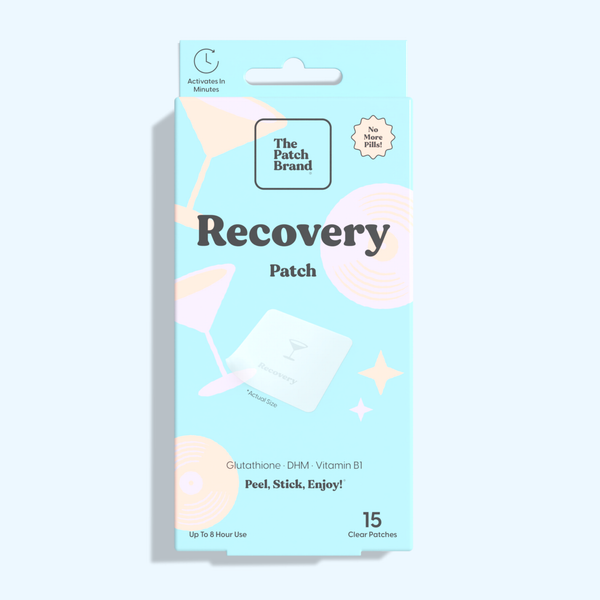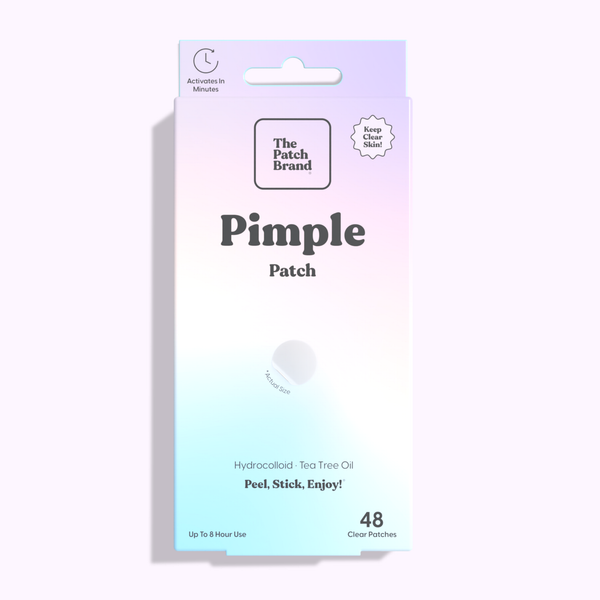A good night's sleep is essential for maintaining optimal health and overall well-being. However, many people struggle with sleep issues such as insomnia, restless nights, or inconsistent sleep patterns. The good news is that several effective natural sleep aids can help improve sleep quality without resorting to prescription medications. In this blog post, we will explore five of the best
natural aids for sleep: melatonin, valerian root, lavender, magnesium, and chamomile. Each of these
sleep aids, including a
sleep patch, offers unique benefits and can be tailored to your specific needs.
Melatonin
Definition and Function
Melatonin is a hormone secreted by the pineal gland, located in the brain. This hormone is essential in controlling the circadian rhythms, which are the physical, mental, and behavioral changes that follow a daily cycle. Primarily, melatonin helps regulate night and day cycles or sleep-wake patterns. The production of melatonin is influenced by the detection of light by the retina of the eye.
During the night, when there is less light, melatonin production ramps up, peaking in the middle of the night and gradually decreasing by morning. This increase in melatonin at night helps to promote healthy sleep and signals the body that it is time to rest. Conversely, during the day, the production of melatonin drops, signaling the body to wake up and stay alert. This cycle helps maintain a consistent sleep pattern, which is critical for overall health.
Melatonin Supplements
Melatonin supplements can be a helpful solution for those who struggle to fall asleep or maintain a consistent sleep pattern. The supplements are available in various forms, such as pills, liquids, and even
melatonin patches. The
best sleep patches can be particularly beneficial for people who have difficulty swallowing pills or prefer a slow, consistent release of melatonin throughout the night. To use a
melatonin patch, simply apply it to your skin before bedtime, and it will gradually release melatonin into your bloodstream while you sleep.
Benefits
Melatonin is widely recognized for its efficacy in improving sleep quality and managing sleep-related issues. Its benefits extend across various aspects of sleep disturbances, from insomnia to the challenges faced by shift workers. Here are detailed explorations of its primary benefits:
-
Improves Sleep: Melatonin is particularly effective for those suffering from insomnia. Insomnia is marked by difficulty in falling asleep or staying asleep long enough to feel rested. By supplementing the body's natural melatonin, which regulates sleep-wake cycles, users often find they can fall asleep more quickly and experience fewer night-time awakenings. Regular use of melatonin under proper guidance can significantly enhance overall sleep quality, providing a non-habit-forming alternative to traditional sleep medications.
-
Combats Jet Lag: Travel across multiple time zones can disrupt the body’s internal clock, leading to jet lag. Melatonin can be instrumental in resynchronizing these rhythms. By taking melatonin close to the bedtime of the new destination, travelers can adjust more quickly to local time, reducing symptoms of jet lag such as daytime fatigue and disorientation. This adjustment helps the body smoothly transition to local time schedules, making recovery from long-distance travel less stressful and more expedient.
-
Aids Shift Workers: Individuals engaged in shift work often struggle with what is known as shift work disorder, characterized by sleepiness during work hours and insomnia when it's time to sleep. Melatonin can help shift workers by mimicking the body's natural sleep cues, assisting in the establishment of a new sleep routine that aligns better with their work schedules. This can lead to improved alertness while working and better sleep during off hours, enhancing overall well-being and job performance.
-
Safe for Short-term Use: Unlike many sleep medications, melatonin is recognized for its safety in short-term applications. It does not induce dependency, which is a significant concern with many sedatives, allowing users to stop treatment without experiencing withdrawal symptoms. Melatonin is therefore the recommended option for people looking for a natural remedy for sporadic insomnia or specific circumstances such as travel or stress-related sleep disturbances.
-
Medical Supervision Recommended: While melatonin is generally safe, it is advisable to use it under medical supervision. A healthcare provider can recommend the appropriate dosage and timing for taking melatonin, ensuring it is tailored to individual health needs and circumstances. This personalized approach helps maximize the benefits of melatonin while minimizing potential side effects, such as morning grogginess or interactions with other medications.
Melatonin offers a range of benefits for those dealing with various sleep challenges. By understanding and leveraging its properties under professional guidance, individuals can significantly enhance their sleep quality and overall health. However, it is crucial to approach melatonin use with an informed perspective, ensuring it contributes positively to one’s sleep hygiene regimen without unintended consequences.

Valerian Root
Background and Traditional Use
Valerian root, derived from the plant Valeriana officinalis, has a storied history as a medicinal herb, dating back to ancient Greece and Rome. Historically, it was prescribed by Hippocrates for its sedative properties and was widely used to alleviate insomnia, nervousness, and even epilepsy. The root's effectiveness is primarily attributed to its interaction with gamma-aminobutyric acid (GABA), a neurotransmitter that helps regulate nerve cell excitability in the nervous system. By enhancing GABA's ability to bind to receptors in the brain, valerian root helps calm the mind and promote relaxation, making it a natural remedy for those seeking relief from stress and anxiety without resorting to pharmaceuticals. Its use has evolved over centuries, but its core application as a tranquility-enhancing agent has remained constant, bolstered by both anecdotal evidence and growing scientific support.
Usage and Effectiveness of Valerian Root
Valerian root is commercially available in several forms, including capsules, tablets, teas, and liquid extracts, each offering a specific concentration of the herb's active ingredients. The effectiveness of valerian root as a sleep aid and anxiety reducer has been the subject of various studies, with many highlighting its potential to improve sleep latency and quality comparable to certain pharmaceutical sleep aids.
It is crucial for users to adhere to recommended dosages and to consult healthcare professionals, particularly when combining them with other supplements or medications. While promising, the body of research on valerian is still growing, and more rigorous, long-term studies are needed to fully ascertain its safety profile, efficacy in treating sleep disorders, and potential effects when used over extended periods.

Lavender
Introduction
Lavender, scientifically known as Lavandula, is a member of the mint family and is highly esteemed for its distinctive fragrance and versatile uses. Native to the Mediterranean, lavender has been utilized for thousands of years, not only for its aromatic properties but also for its therapeutic benefits. Renowned for inducing relaxation and a sense of calm, lavender's essential oils are extracted from its vibrant purple flowers. These oils contain active compounds such as linalool and linalyl acetate, which are believed to influence the limbic system, the part of the brain responsible for emotions and memories. By doing so, lavender helps mitigate stress and anxiety, facilitating a tranquil environment conducive to sleep. Its use in folk medicine and modern aromatherapy underscores lavender's enduring popularity as a natural remedy for enhancing mood and improving sleep quality, making it a favored choice among those seeking a holistic approach to relaxation and nighttime comfort.
Methods of Use for Lavender
Lavender can be incorporated into a nighttime routine through a variety of methods, each leveraging its soothing properties to enhance sleep quality. Aromatherapy is perhaps the most common approach, utilizing lavender essential oil in diffusers to permeate the air with its calming scent, which studies suggest may lower heart rate and blood pressure, thereby promoting relaxation.
Direct application methods include placing a few drops of lavender oil on pillows or bedding or using inhalation patches. For a more tactile experience, lavender-infused topical products such as massage oils, lotions, and bath salts can be applied to the skin, providing both the aromatic benefits and the relaxing effects of physical touch. For those who prefer internal remedies, oral lavender supplements are available in capsule form. These supplements are designed to harness the anxiolytic properties of lavender to
reduce stress and improve sleep latency. Each method offers a unique way to utilize lavender's relaxing effects, catering to personal preferences and specific needs for better sleep.

Magnesium
Role in the Body
Magnesium, an essential mineral, plays a pivotal role in maintaining optimal health by participating in over 300 enzymatic reactions throughout the body. This vital nutrient is crucial for several physiological functions, including muscle relaxation and the regulation of the nervous system. Its influence extends to the cardiovascular system, where it helps manage blood pressure, and to the skeletal system, contributing to bone health. The mineral's effect on muscle relaxation is especially important in preventing involuntary muscle contractions and easing muscle tension.
Magnesium Deficiency and Sleep
A significant number of people do not consume sufficient magnesium in their daily diets, leading to a deficiency that can manifest in various health issues, particularly sleep. Magnesium deficiency is commonly linked to several sleep-related disorders, including insomnia, restless leg syndrome, and sleep apnea. These conditions stem from the mineral's role in muscle and nerve function, as inadequate magnesium levels can result in heightened muscular and neurological activity at night, disrupting sleep.
Furthermore, magnesium is essential for the production of melatonin, the hormone that regulates sleep-wake cycles, and a deficiency can therefore disrupt these cycles, leading to poor sleep patterns. The effects of low magnesium levels on sleep are significant, as they can perpetuate a cycle of sleeplessness and stress, which in turn can further deplete magnesium levels, creating a challenging cycle to break.
Magnesium Supplementation
To combat magnesium deficiency and its associated health implications, supplementation can be an effective strategy. Magnesium is available in several forms, including magnesium citrate, magnesium glycinate, and magnesium oxide, each offering different levels of bioavailability and specific benefits. For instance, magnesium citrate is known for its laxative effect, while magnesium glycinate is often recommended for its calming properties, making it particularly beneficial for improving sleep. The appropriate dosage of magnesium supplements varies depending on factors such as age, health status, and specific sleep issues. By stabilizing mood, reducing stress levels, and enhancing overall relaxation, magnesium supplements can serve as a potent natural remedy for sleep difficulties.

Chamomile
Background
Chamomile, a member of the daisy family, is a traditional herb that has been utilized for centuries across different cultures primarily for its medicinal benefits. This plant is renowned for its soothing properties and its ability to alleviate various conditions such as insomnia, anxiety, and digestive issues. The primary active component in chamomile that contributes to its calming effects is apigenin, a bioflavonoid that can significantly influence the central nervous system. Apigenin binds to benzodiazepine receptors in the brain, which plays a crucial role in promoting relaxation and sleepiness.
Due to its mild sedative effects, chamomile is often recommended as a natural remedy to enhance sleep quality and reduce anxiety. Its widespread use and acceptance are also bolstered by its availability and the general perception of chamomile as a gentle, non-invasive alternative to pharmaceutical sleep aids.
Usage and Effectiveness
Chamomile is most commonly used in tea form, but its versatility allows it to be incorporated into various forms for consumption and use. The following are the primary methods by which chamomile is used to promote relaxation and sleep:
-
Chamomile Tea: Consuming chamomile tea has become a comforting evening ritual for many. The process of brewing the tea and the soothing warmth help to relax the body and mind, making it easier to transition to sleep. Drinking a cup of chamomile tea as part of a consistent bedtime routine can significantly enhance its effectiveness, signaling to the body that it is time to wind down and prepare for sleep.
-
Supplements and Extracts: Chamomile is also available in more concentrated forms such as capsules and liquid extracts. These forms are beneficial for individuals who require a stronger dose of chamomile's active ingredients or those who may not enjoy the taste of herbal tea. Supplements and extracts provide a convenient and potent alternative, delivering the herb’s benefits in a form that can be easily incorporated into any daily routine.
The use of chamomile, whether as a warm tea or a potent supplement, supports relaxation and a transition into a restful state, which is essential for quality sleep. This makes chamomile a valuable and natural option for enhancing sleep without the harsh side effects often associated with pharmaceutical sleep aids.
Finding the right natural sleep aids for your unique needs is essential to improving sleep quality and overall well-being. It is important to consult with a healthcare professional before starting any supplementation to ensure the chosen sleep aid is appropriate for your specific circumstances. By exploring these natural and holistic approaches to sleep health, you can work towards a more restful and rejuvenating night's sleep.





